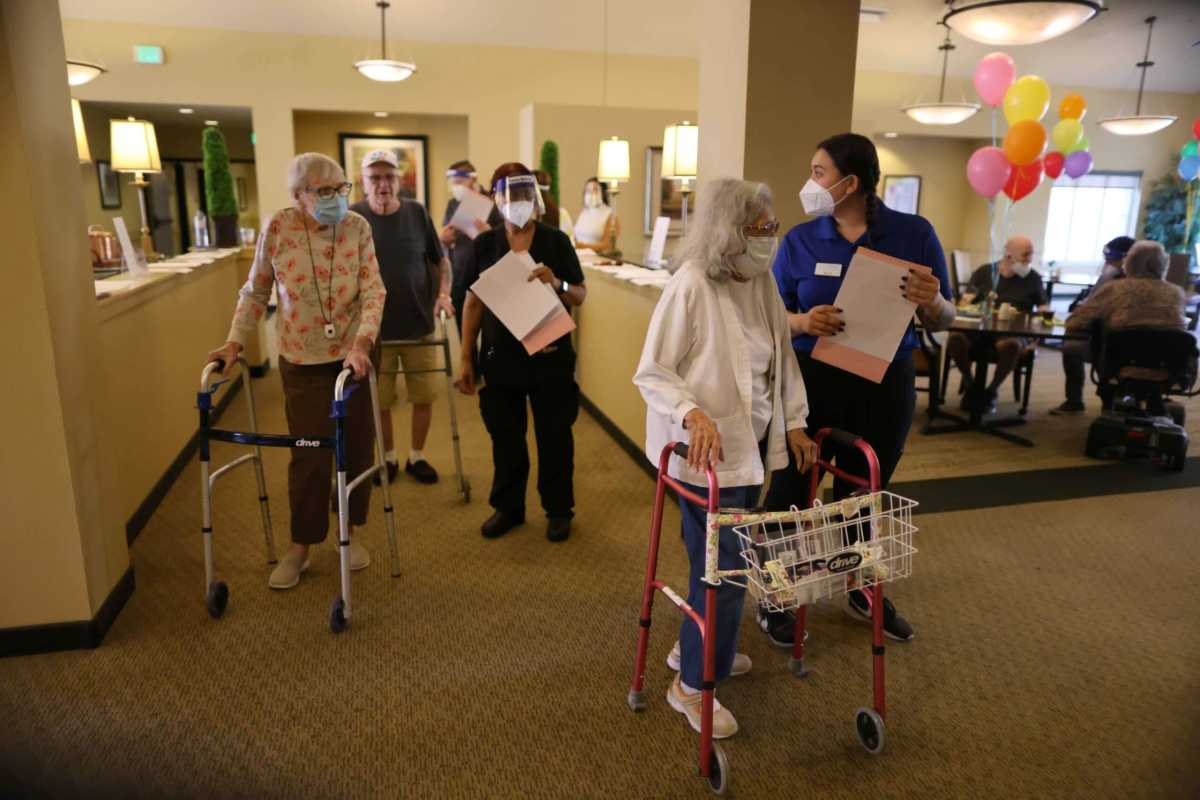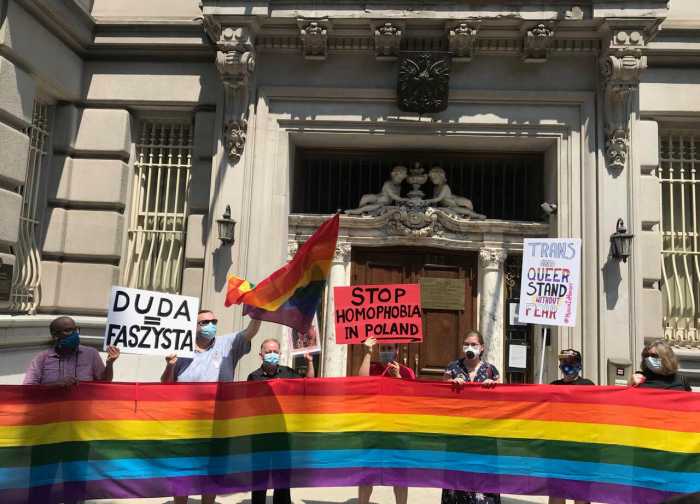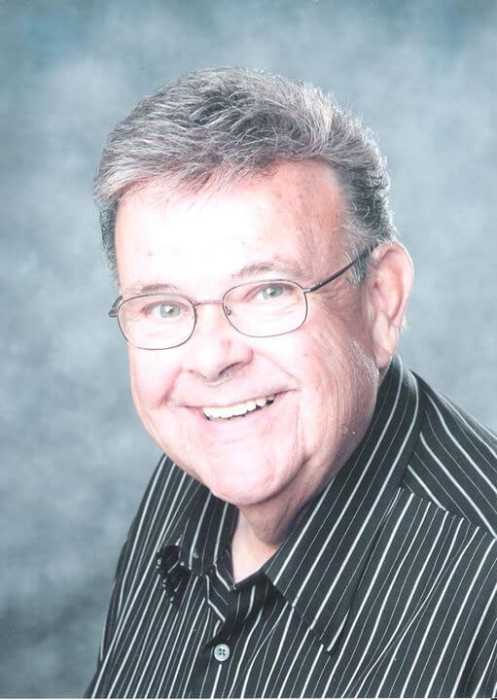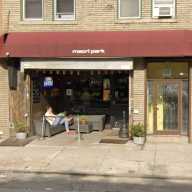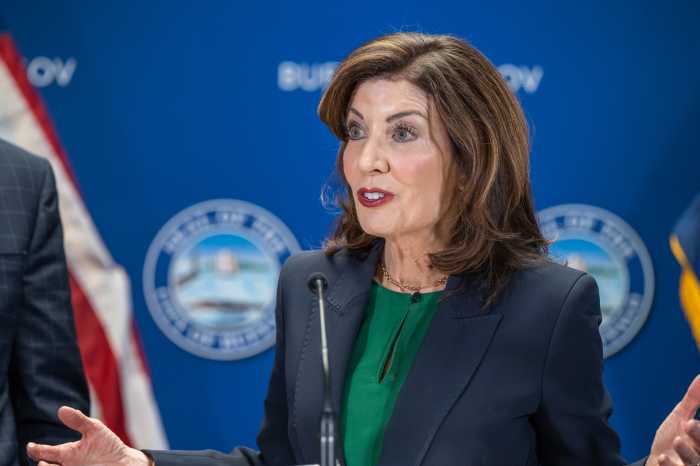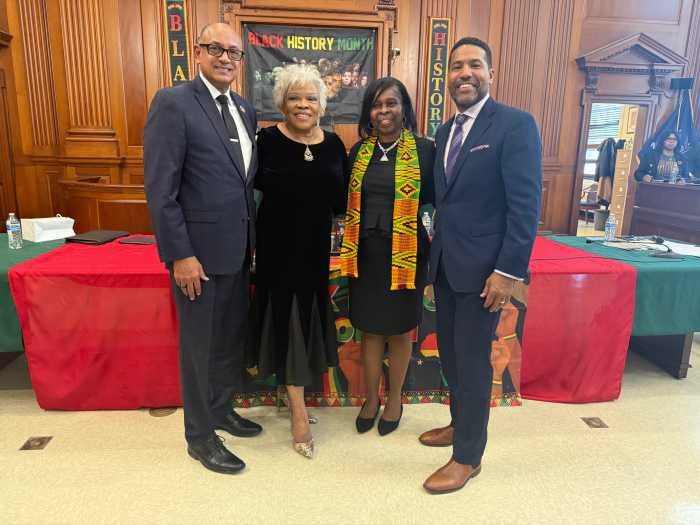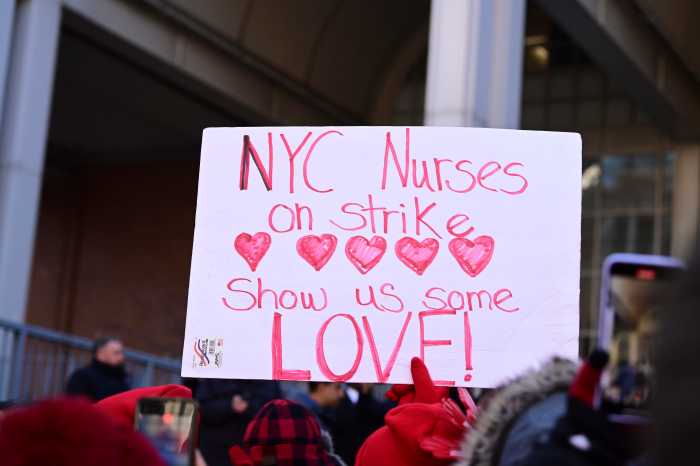A new report published by Advocacy & Services for LGBT Elders (SAGE) and AARP is shedding light on disparities impacting queer New Yorkers 50 years and older, including LGBTQ people of color.
SAGE and AARP compiled data and outlined plans of action to address the issues spelled out in the report, which touches on economic and health disparities, social issues, and other areas of need for queer adults above the age of 50. The report offers recommendations for leaders as they confront these challenges and work to improve the lives of queer seniors.
The report’s release was mostly met with praise among elected officials, but there was nonetheless concern that the report was formulated without thoroughly consulting with local organizations dedicated to LGBTQ seniors of color.
On the health front, the report outlines intersecting health and economic issues facing the community: While the report notes that 23 percent of queer New Yorkers lack sufficient health insurance coverage, nearly a third of people living with HIV in New York are over the age of 50, which further demonstrates the need for a stronger emphasis on providing queer older adults with the care they need regardless of cost.
The report also cites data indicating that Black older adults make up 41 percent of new HIV diagnoses for folks 50 years or older, while Hispanic older adults represent 19 percent.
Furthermore, 17 percent of queer New Yorkers over the age of 50 are experiencing mental distress, at least 13 percent are suffering from depression, and 14 percent are reporting chronic health issues, according to the report.
Some of the most profound disparities are evident when evaluating poverty numbers. Queer older adults are disproportionately burdened by poverty, and it’s even worse for those over the age of 80. The report revealed that 48 percent of bisexual older women and transgender older adults live at or below 200 percent of the federal poverty line, while bisexual older men rank just behind at 47 percent. Forty percent of LGBTQ Hispanic and Black older adults also fall at or below that poverty line.
A whopping 54 percent of trans older adults are worried they will need to go into the closet when seeking senior-based housing.
Such realities underscore the importance of LGBTQ-inclusive housing options, such as SAGE’s Stonewall House at 112 Edwards Street in the Fort Greene section of Brooklyn as well as a forthcoming LGBTQ-friendly housing development in the Bronx.
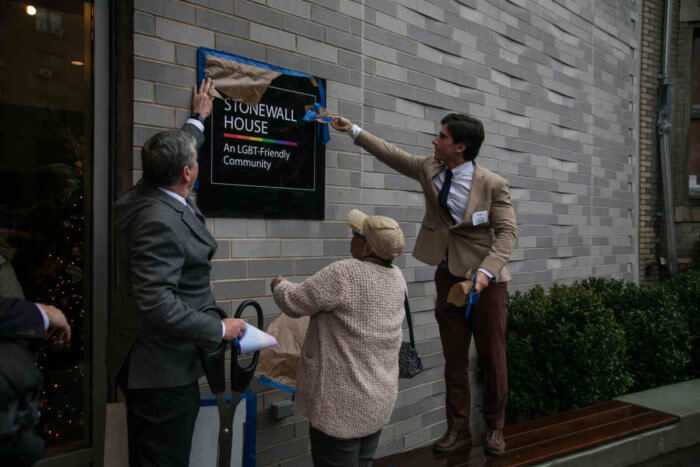
SAGE and AARP hosted a virtual press conference on January 28 during which the organizations outlined their report and featured a handful of local state lawmakers, including out gay State Senators Jabari Brisport of Brooklyn and Brad Hoylman of Manhattan, as well as out gay Assemblymembers Harry Bronson of Rochester and Daniel O’Donnell of Manhattan, among others.
However, Griot Circle — a local organization providing a range of services to LGBTQ seniors of color — was not at the press conference, and the group’s deputy director, Aundaray Guess, expressed concern that the group was not brought in to join the project.
“This report was created without the support of other organizations who have the targeted audiences of which this report is about.” Guess told Gay City News in a phone interview. “You don’t get a full picture of who and what people are going through, their unique challenges, and it also speaks to African-Americans, in general, being left out of the process.”
Gay City News asked SAGE CEO Michael Adams during the press conference which other LGBTQ groups were included in the project. In response, Adams said he “in particular would lift up Griot Circle” and praised the group for its work.
In an email to Gay City News on the afternoon of January 28, Adams responded to Griot Circle’s concerns.
“Disrupting Disparities is a project of AARP and SAGE; there aren’t additional LGBT+ partners for this report and this phase of the work,” Adams said. “When I lifted up GRIOT Circle earlier today, I noted that SAGE works closely with GRIOT and numerous other organizations and relied on their reports, needs assessments, etc. to inform the report, which is based on published research and data. We did not do informant interviews for this report…”
He added, “Our intention is that today’s report will catalyze additional needs assessment work focusing on LGBT+ older adults of color living at the intersections. Some of that work is already in exploration and more will be developed, and we look forward to the involvement of many organizational partners from people of color communities in that work.”
Lawmakers on hand at the press conference, meanwhile, underscored the need for legislative action and touted related efforts underway in the State Legislature, such as Hoylman’s legislation intended to designate LGBTQ older adults and people living with HIV as populations with greater social needs.
“LGBTQ older New Yorkers are sometimes deemed to be invisible,” Hoylman said. “We have incredible youth-oriented segments of the population, but we need to reposition the lens through which we view these issues. As we age, LGBTQ New Yorkers run the risk of increased isolation, disconnection from vital services, and greater discrimination compared to non-LGBTQ peers.”
Brisport, who is the first out LGBTQ person of color elected to the New York State Legislature, invoked the housing issues facing queer seniors and pointed to the Stonewall House as a model example of how to provide relief to an aging queer population.
The State Senate newcomer also addressed the health disparities in the report and reminded those at the presser that queer folks are feeling the burden of government inaction during yet another pandemic after already being neglected throughout the HIV/AIDS crisis.
“It’s really important to me knowing that LGBTQ people, especially seniors, have navigated a country that has been hostile to queer people for decades. It’s important to me that they can age in dignity.”
The recommendations outlined in the report call for policymakers to double down on efforts by the state’s Office for the Aging to bolster inclusion of queer older adults in outreach efforts, cultural competency programs, services, and other areas.
The report also recommends establishing a statewide commission on LGBTQ aging, reassessing the definition of family to include chosen family members, adopting an LGBTQ-specific long-term care residents’ bill of rights, and ramping up data collection for queer older adults.
Read the full report here.
Tat Bellamy-Walker also contributed reporting to this story.

